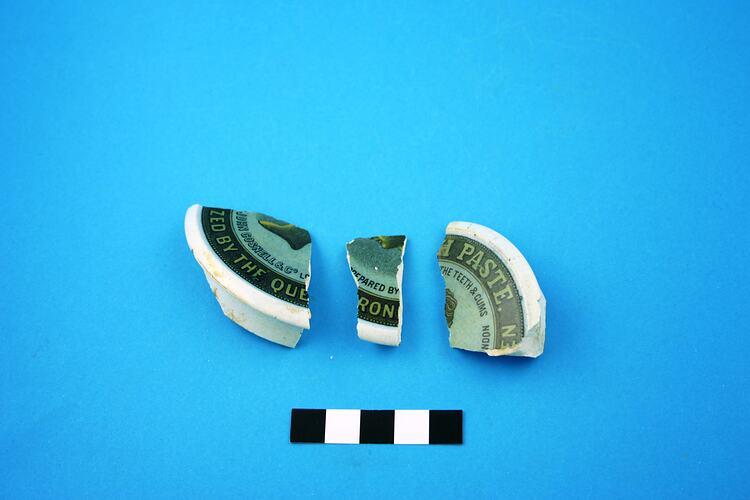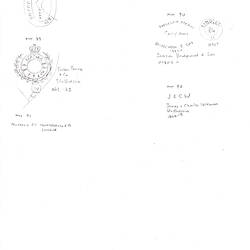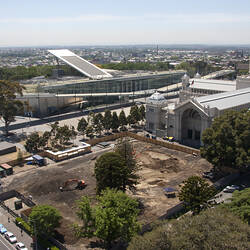Physical Description
Three conjoining fragments of the earthenware lid of a toothpaste pot. Label is a polychrome transfer print featuring Queen Victoria. Maker's mark indicates it was manufactured by John Gosnell & Co, London. Manufactured after circa 1840.
Physical Description
Three conjoining fragments of the earthenware lid of a toothpaste pot. Label is a polychrome transfer print featuring Queen Victoria. Maker's mark indicates it was manufactured by John Gosnell & Co, London. Manufactured after circa 1840.
More Information
-
Collection Names
-
Collecting Areas
Public Life & Institutions, Historical Archaeology, Royal Exhibition Building
-
Acquisition Information
Transfer from Godden Mackay Logan Heritage Consultants (GML), Department of Archaeology, La Trobe University, Australia Gallery, History & Technology Department, Museum Victoria, 18 Jan 2010
-
Manufacture Date
-
Context Number
J13//
-
Site
Australia, Victoria, Melbourne, Royal Exhibition Building Western Forecourt
-
Distinguishing Marks
Maker's mark. Gosnell website states that a full stop after toothpaste (as on this lid) indicates it may have been manufactured pre-1875. 'Ltd' (which this pot does not have) was included in the company name after 1898. Polychrome transfer prints were available from circa 1840. Coloured cosmetic pot lids were at the height of their popularity in the 1860s. Few were produced after 1890.
-
Activity
-
Specific Activity
-
Decoration
-
Colour
Polychrome
-
Classification
-
Category
-
Discipline
-
Type of item
-
References
Majewski and O'Brien 1987: 143; Fletcher 1975: 8; Williams-Wood 1972: 39
[Article - Journal] Majewski, T & O'Brien, M J. 1987. The Use and Misuse of Nineteenth-Century English and American Ceramics in Archaeological Analysis. Advances in Archaeological Method and Theory. 11: 97-209., 1987, 143 Pages
[Book] Fletcher, Edward. 1975. Collecting Pot Lids., 1975, 8 Pages
[Book] Williams-Wood, Cyril. 1972. Staffordshire Pot Lids and Their Potters., 1972, 39 Pages
-
Keywords
Archaeology, Dental Hygiene, Royal Exhibition Building, World Heritage



